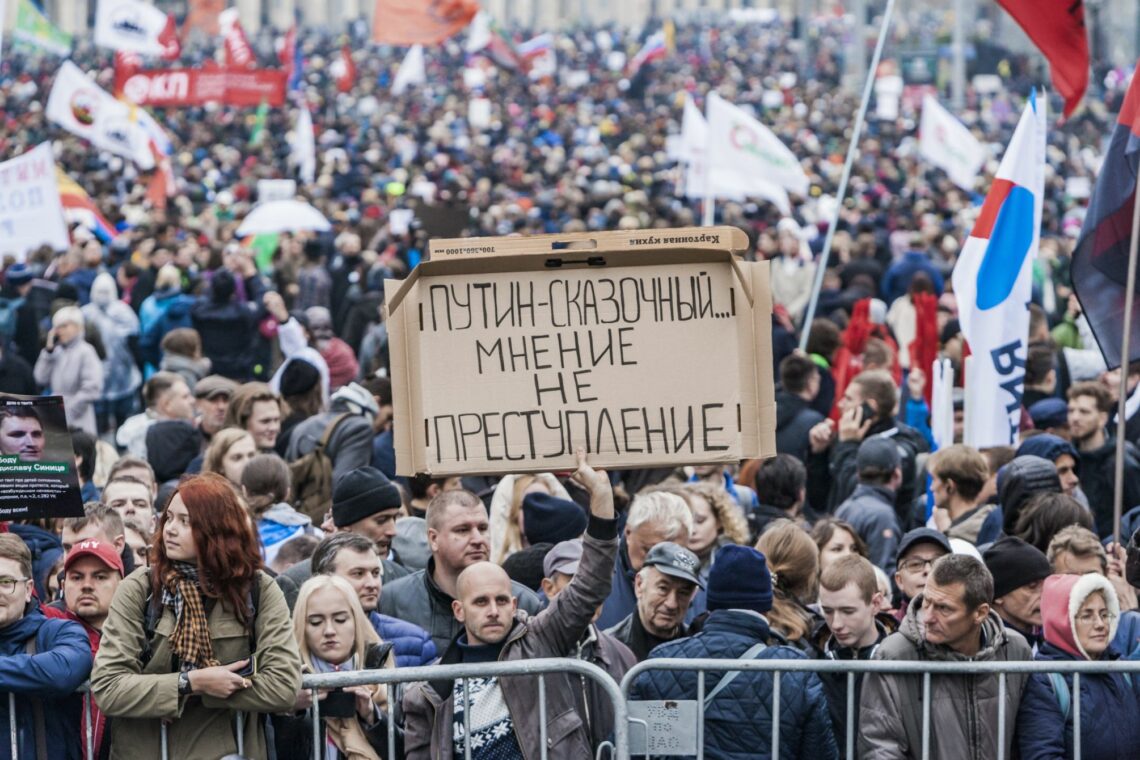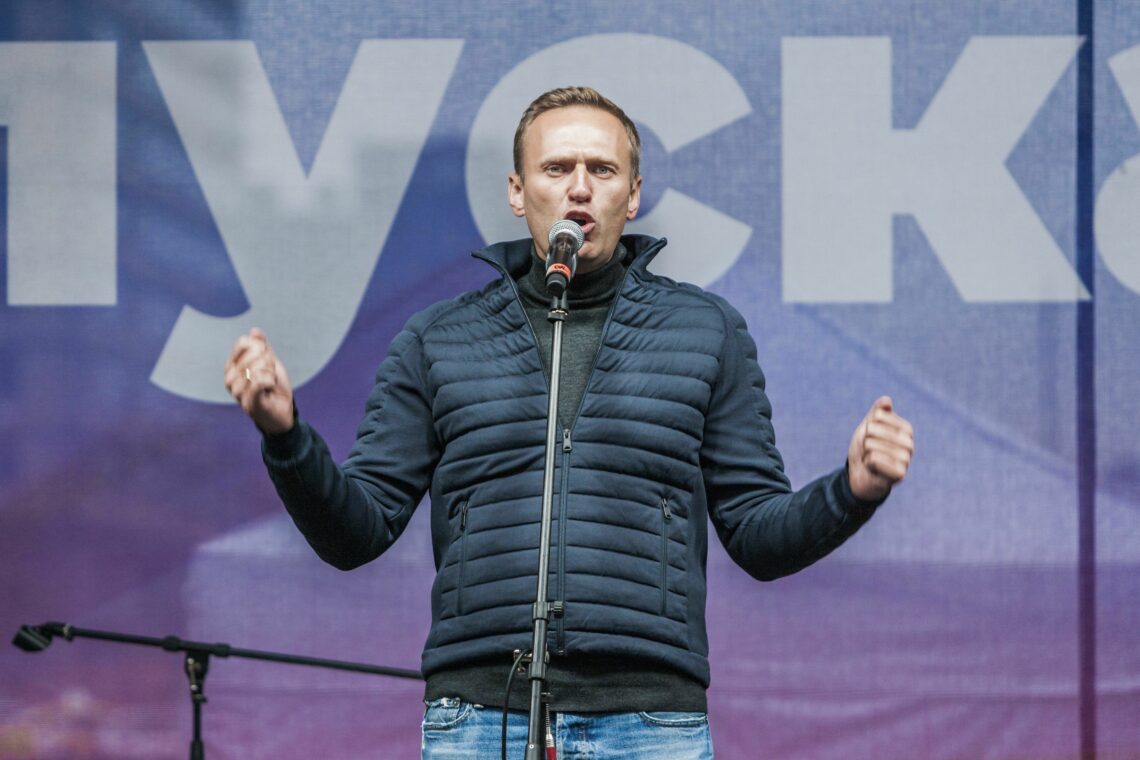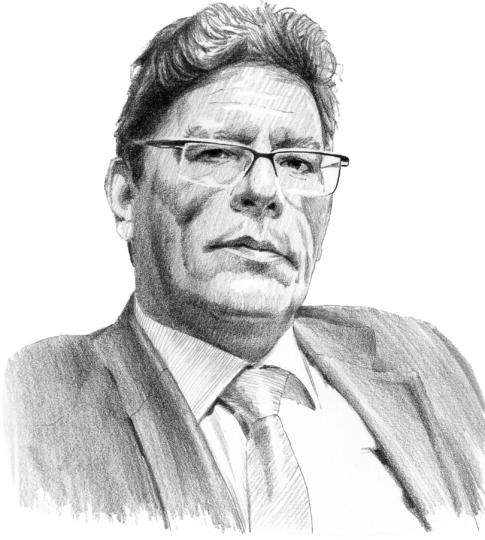A new actor in Russian politics – citizens
The only role “the people” have played in Russian politics was to legitimize the regime in power. Now, that seems to be changing – all because of a mismanaged election for Moscow’s city parliament. The nascent civil society movement may not bring radical political change soon, but it has certainly become a force to be reckoned with.

In a nutshell
- A movement against political repression is gaining strength
- Authorities have not been able to suppress the protests
- The people will gain a new role in determining Russia’s politics
For a long time, descriptions of Russian politics have lacked an actor that is unignorable in many other societies: the people – that is, citizens or civil society. This absence is justified. Though political participation rose sharply in the late 1980s (and was a crucial factor in the Soviet Union’s collapse) it plunged drastically after the bloody clashes of the 1993 constitutional crisis and has never recovered.
Russian politics has been driven by groups of elites – on the right and left, cynical and idealistic, pro- and anti-Western, but elite par excellence. The only role the masses played (though admittedly of paramount importance) was as the source of legitimacy.
This legitimizing role, however, is a passive one that does not call for any independent participation in shaping the political agenda. The only exception to this state of affairs came with a wave of protests at the end of 2011 and beginning of 2012. They seemed accidental and were purely based in Moscow. The authorities swiftly and efficiently brought the protests to an end.
Now, it seems this passivity can no longer be taken for granted. Some events currently taking place might seem minor, but could foreshadow a turning point – much like the first changes brought about by the perestroika were only duly appreciated in hindsight.
Political machine
On September 8, Moscow held elections for the city’s Duma, or parliament. This entity is entirely subservient to the city and federal administrations. It has no serious authority, nor any notable political role. Early in the summer, the political machine controlled by the mayor’s office was prepared to hold the elections as usual. Approved candidates had been nominated in all districts; the rules for gathering signatures were so strict that it seemed no unvetted opposition mouse could have possibly squeezed through those barricades. Public interest in the election was low.
The mayor’s office was forced to blatantly falsify the signature rolls. No one was fooled in the slightest.
Soon, however, it turned out that the new rules made it impossible for even the approved candidates to collect enough signatures. The mayor’s office was forced to blatantly falsify the signature rolls. No one was fooled in the slightest.
At the same time, opposition candidates, who, unlike the loyalists, had launched a large-scale campaign in the courtyards, on the streets and on social media, were dangerously close to passing the threshold for registration. There was some doctoring on that side as well, though it was far less extensive. The opposition managed to establish a firm presumption of innocence in the public’s view, while the mayor’s office and its candidates were seen as untrustworthy.
The mayor’s office panicked and shot itself in the foot, deciding to remove all opposition figures from the ballot, using every trick in the book. Many were denied registration, while loyal candidates were put on the ballot. Weekly protests followed and quickly gathered force, rising from hundreds of participants to tens of thousands. These were accompanied by numerous arrests, both of unregistered opposition candidates and everyday citizens. At a protest on July 27, a record 1,373 people were detained.
Arbitrary response
It was apparently at this moment that the mayor’s office was removed from the decision-making process. The federal siloviki, or senior officials in the security apparatus, saw the protests as yet another threat that could lead to revolution, and took over. Moscow Mayor Sergei Sobyanin, a top political figure who had been considered a potential successor for Russian President Vladimir Putin, lost significant clout. Events, however, went beyond the siloviki’s control.

It should be noted that these protests saw less physical violence than is typical for similar demonstrations in other large cities like Paris, Hong Kong or Kiev. Russian protesters have behaved surprisingly peacefully: not a single car was burned or overturned, not a single shop window smashed, not a single road blocked, not a single barricade erected. Russian police, on the other hand, have so far not resorted to using water cannons, tear gas or rubber bullets.
However, authorities’ actions in breaking up the protests fueled public indignation – not so much because of their cruelty, but because of their arbitrary application. Many of the people who were clubbed, arrested or prosecuted were apolitical or loyal to the ruling party. They included 30-year-old Konstantin Konovalov, who designed the Moscow subway logo; or 23-year-old Pavel Ustinov, a theater actor who had previously served in the National Guard. Like many others, they simply found themselves in the wrong place at the wrong time.
Many of those detained after the July 27 events were accused of participating in a “mass disturbance.” The corresponding article in the Russian Criminal Code refers to “violence, demolition, arson, destruction of property, use of weapons, explosive devices, explosive, poisonous or other substances and objects dangerous for the people around, as well as armed resistance against the authorities.” Nothing of the kind had happened on that day or during other protests. The pinnacle of violence committed by the unhappy crowds was a paper coffee cup thrown in the direction of a policeman – this event was also characterized as a “mass disturbance.”
‘Smart voting’
Unlike in 2012, the intimidation strategy failed. The Moscow City Duma elections did not go the way the mayor’s office had hoped. An initiative championed by Alexey Navalny, the principal contender for leadership of the Russian “non-systemic opposition,” was unexpectedly successful. The idea, dubbed “smart voting,” was that voters should cast their ballot for any candidate, irrespective of his or her political or ideological preferences, who was most likely to defeat the candidate backed by the ruling United Russia party.
As a result, the loyalists lost 20 of Moscow’s 45 electoral districts. The candidates that lost included some whose victory had seemed a foregone conclusion. One was the head of the United Russia party for the capital, who had held his position for years.
Large meetings and marches continue to be held. Now, however, they are focusing on the broader topic of political repression.
The campaign was rife with absurdity, too. For instance, in one of the districts, a party called A Just Russia offered up a candidate with the same name as a well-known opposition figure – Alexander Solovyov – who had hoped to run there. The famous Mr. Solovyov was barred from participating and spent election day in a prison cell. He had been sentenced to 20 days for participating in unsanctioned demonstrations. The spoiler Mr. Solovyov won the election, seemingly by accident. For several days after the vote, he could not be found. It seems he is still recovering from his unexpected stroke of bad luck.
More importantly, large meetings and marches, including unauthorized ones, continue to be held. Now, however, they are not focusing on unfairness in the Moscow Duma elections, but instead on the broader topic of political repression. Protest activities are being conducted in ways that have not been seen in Russia for a very long time.
Though traditionally people in Russia’s provinces tend to resent Moscow, several other cities held rallies in solidarity with the capital, using slogans such as “Moscow, we are with you.” It is noteworthy that the events bridged this center-periphery divide, which might be compared to the one dividing Alaskans or Montanans from Manhattanites.
Growing discontent
Also unlike 2011-2012, the discontent voiced by the protests went beyond the “creative class.” On September 30, after yet another protest rally with about 20,000 participants, I found myself in a simple pub, a haunt for members of the lower middle and working classes – hardly a bohemian hangout. The pub’s owners asked customers: “Were you at the rally today?” Of about a hundred people in the pub, five or six said they had taken part. Each of them received a free beer – and a promise of free beer for the rest of the year. “Now we’ll be able to feel like we were there too,” explained the management.
A flood of open letters demanding a stop to political repressions have been written, somewhat reminiscent of the banquet campaigns in France in 1847 and in Russia in 1904 – both times on the eve of revolution. At first, it seemed that they were purely community-based reactions aimed at self-defense and self-preservation, like the one earlier this summer that had managed to set journalist Ivan Golunov free. Something of the kind was, indeed, happening – the actor Pavel Ustinov, mentioned above, was supported by other actors, including major stars; Yegor Zhukov, a student at the Higher School of Economics, probably the government’s most valued “pocket of efficiency,” was championed by the professors and students of that state-owned university.
The state may tighten the screws again, as has happened before. Yet, it is undeniable that a change has occurred.
But the phenomenon was larger. Professional networks were simply a convenient framework for expressing a social stance. There were letters by artists, psychologists, cartoonists, literary figures of all kinds, benefactors, medical doctors, information technology specialists, lawyers, schoolteachers, political analysts, academics and others. Some letters had hundreds or even thousands of signatures.
Against that diverse background, a letter from Orthodox priests, signed by more than 180 people, stood out. It cited St. Paul’s words: “For ye have not received the spirit of bondage again to fear.” Something similar might be expected in a Protestant or Catholic environment (in Latin America, for example, during the heyday of Liberation theology), but certainly not in today’s Russia. Interestingly, the reaction from the Patriarch’s office to the unauthorized move was only voiced by minor officials, and, contrary to expectations, was quite moderate. It almost gave the impression of subdued approval.
The authorities reacted to these bizarre events in their usual way: with a partial retreat. The loyalists who had lost the elections acknowledged their defeat. There were promises (certainly not for the first time) to reform the election process. Some of the people who had been detained were completely exonerated, while others were put under house arrest.
The feigned concern over “mass disturbances” is melting away. During the more recent protests, the police have acted with commendable benevolence. The state may tighten the screws again, as has happened many times before. Yet, it is undeniable that a change has occurred.
Finding their voice
No one is saying that the Russian regime will change radically anytime soon. In a longer-term view, however, a responsible analysis of Russia’s political dynamics – in contrast to previous practices – will have to consider the appearance of a new actor: the people. Certainly, Russia’s civil society is not well-structured, with autonomous institutions that act on the political stage, as in much of the Western world. After all, in some cases it has taken centuries for these structures to develop. But it is clear that the strategies of “exit” and “loyalty” as described by Albert O. Hirschman as responses to decline in firms, organizations and states, have finally been complemented by the appearance of “voice” in Russia.
This voice is becoming truly civic, not just guild- or corporation-based. That is, it is not motivated by group interests, but rather by the idea of the common good; not by personal or material, but by idealistic (ethical and esthetic) notions. This unexpected development in Russian political life will require all parties to adjust. But they had better adjust quickly, or be completely overtaken by the course of events.








